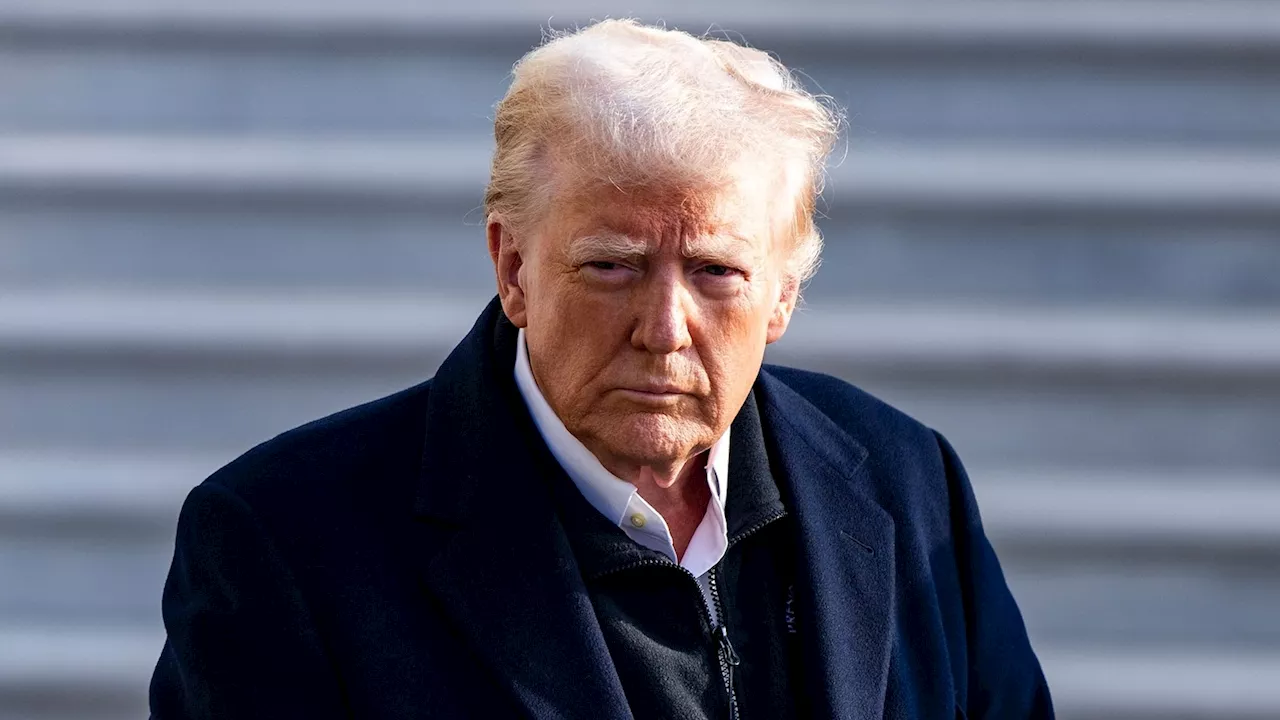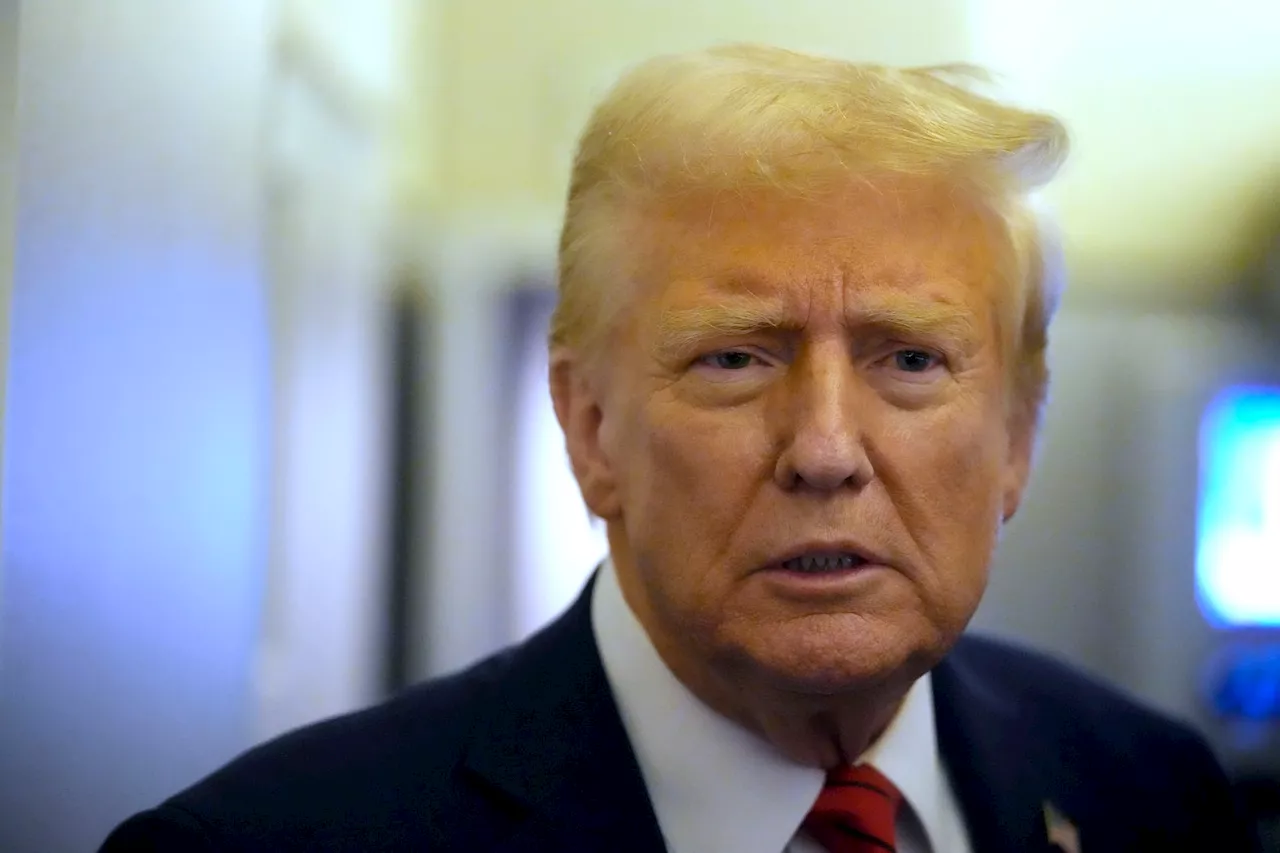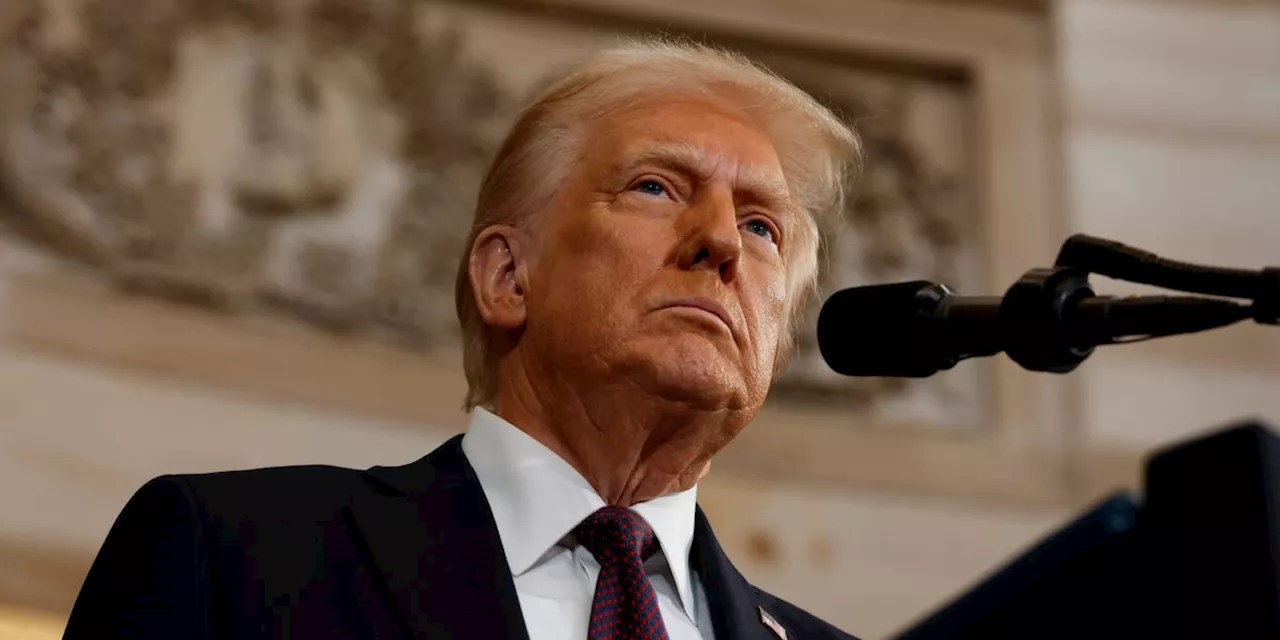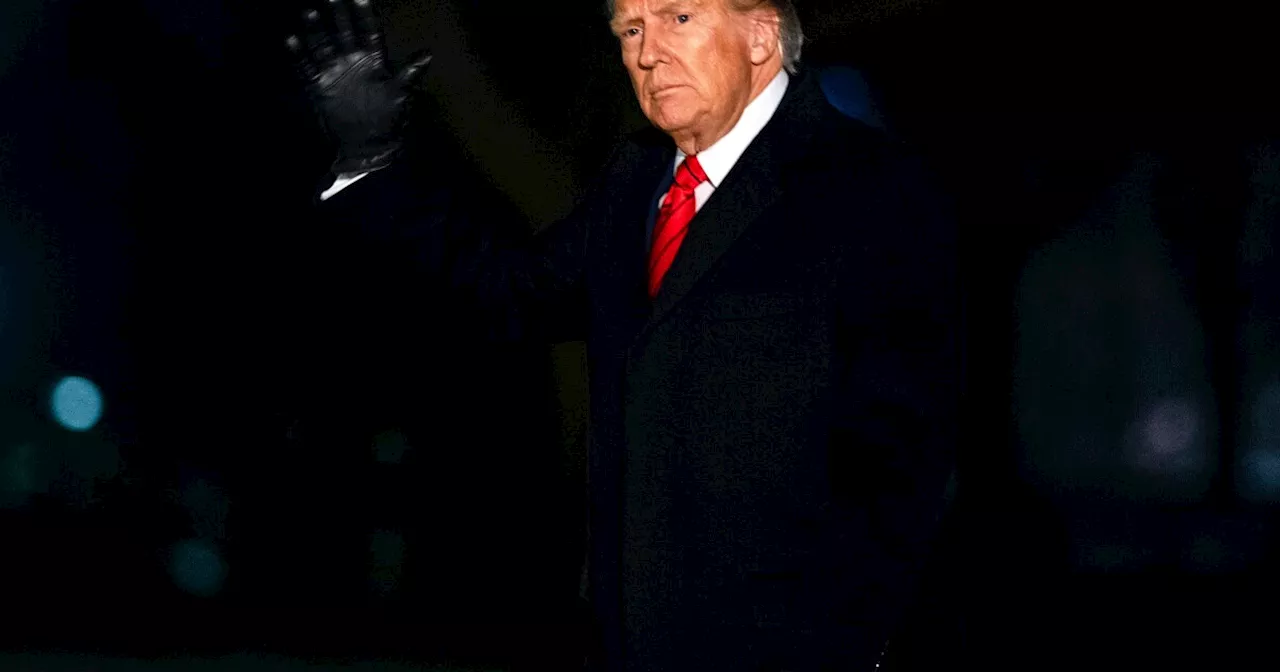President Trump's administration has issued a memo halting numerous federal grant programs, prompting widespread confusion and legal challenges. The memo, which aims to review and potentially redirect federal spending, has been criticized by non-profits, states, and some congressional Republicans.
President Donald Trump has pledged to significantly reduce the federal government's scope, and a memorandum released on Monday by the Office of Management and Budget ( OMB ) appears to be taking steps towards fulfilling that promise by halting numerous federal grant programs.
Federal agencies, states, and other organizations that receive funding from the federal government are grappling to understand the intricacies of this new Trump administration memo, which appears to halt federal funding and grant programs. The memo, obtained by NPR, states that a temporary pause on funding will commence at 5 p.m. EST on Tuesday, but a senior administration official told NPR that the pause could be as brief as a day if an agency determines its programs are in compliance. The senior official emphasized that the directive should not be interpreted as a complete funding freeze. The official, who was not authorized to publicly discuss the internal memo, explained that agencies are expected to review their grants, loans, and programs to ensure they align with the new administration's priorities. While administration officials have insisted that the impacts are being misinterpreted, the actual text of the memo is quite extensive, and subsequent guidance has been vague. White House Press Secretary Karoline Leavitt informed reporters on Tuesday that a list of affected programs would be provided, but that list has yet to be released. Leavitt specifically stated that Medicare, food stamps, and Social Security would not be affected but did not elaborate on how this would function in practice. Trump has explicitly stated his intention to review all recently signed executive orders from the past week. These documents included calls for reviews of various programs and funding. The new administration is also pursuing broad changes to the federal workforce. Critics contend that the demand for a funding freeze is unlawful because Congress has already approved the funds to be spent. However, the administration argues that this action is necessary to ensure fiscal responsibility and prioritize national needs. A coalition of non-profit organizations has already filed a legal challenge to the order. The National Council of Nonprofits, American Public Health Association, Mainstreet Alliance, and SAGE filed the lawsuit in a district court in Washington, D.C., seeking to prevent the funding freeze from taking effect. They argue that the memo lacks clarity regarding the OMB's legal authority to halt grant programs, disregards the reliance interests of grant recipients, and potentially targets recipients based on their First Amendment rights, with no connection to their eligibility for federal funds. Several states have also indicated their intention to challenge the policy in court. New York Attorney General Letitia James announced on X (formerly Twitter) that her office would be taking 'imminent legal action' against the administration's unconstitutional pause on federal funding. Meanwhile, House Republicans are currently convening for their annual party retreat, a meeting being held at Trump's Doral resort in Miami. Trump addressed lawmakers on Monday, and Vice President J.D. Vance is expected to speak to the group on Tuesday. Rep. Dusty Bacon (R-Neb.) expressed concern about the potential impact of the funding freeze on people who rely on these grants. He stated that he hoped it would be a short-lived measure, emphasizing that there are real individuals whose lives depend on these grants. Bacon added that he had already received concerns from constituents in his district and reiterated his hope for a temporary solution, stating that there was no reason for the disruption. When questioned about the legality of the order, Bacon acknowledged that he is not a lawyer but pointed out that Congress had already approved the grants. He questioned how the administration could simply halt them. Bacon cited the example of a woman who operates a before- and after-school program funded partially by a federal grant, highlighting how the freeze would directly affect her ability to continue her work. He further explained that in the long term, the freeze could force people to shut down their programs, and since the funds had already been appropriated, he believed it would be a short-term measure that should be reversed. Republican leaders, according to multiple GOP attendees, have not addressed the federal order freezing grants during Tuesday's program. Rep. Tom Rice (R-S.C.) declined to comment on the legality of the order, stating that he needed to consult with his legal team. Rep. Mike Johnson (R-La.) expressed support for the president's actions, saying that he believed Trump had the authority under his executive order to review spending by category, as appropriated by Congress, to ensure proper implementation under Article Two. When asked whether the move amounted to impounding money already approved by Congress, Rep. Steve Scalise (R-La.) stated, 'I don't think the courts have supported that over the years. Let's wait and see. Let's let him do his review and see what the result is.' Rep. Ryan Zinke (R-Mont.) backed President Trump's move to freeze grants, stating, 'I think it's a fair proposition that taxpayers know where the money goes.' Zinke, who served as Interior Secretary in Trump's first term, said he reviewed grants then and as a member of the Foreign Affairs panel, he was already familiar with the process.
FEDERAL GRANTS PRESIDENT TRUMP OMB LEGAL CHALLENGE FUNDING FREEZE CONGRESS NONPROFITS STATES REPUBLICAN PARTY
United States Latest News, United States Headlines
Similar News:You can also read news stories similar to this one that we have collected from other news sources.
 Trump Administration Halts Communications and WHO Collaboration at Federal Health AgenciesThe incoming Trump administration has implemented sweeping changes to federal health agencies, including a temporary halt on all non-emergency external communications and a suspension of work with the World Health Organization (WHO). This action has resulted in the delay of the CDC's weekly report and travel restrictions for some agency staff.
Trump Administration Halts Communications and WHO Collaboration at Federal Health AgenciesThe incoming Trump administration has implemented sweeping changes to federal health agencies, including a temporary halt on all non-emergency external communications and a suspension of work with the World Health Organization (WHO). This action has resulted in the delay of the CDC's weekly report and travel restrictions for some agency staff.
Read more »
 Trump Administration Halts Federal Spending in Ideological ReviewPresident Trump's administration has initiated a nationwide freeze on federal spending, citing a need to align funding with his executive orders. The move, which takes effect immediately, has sparked confusion and concern among organizations reliant on federal funding, while Democrats denounce it as illegal and potentially devastating.
Trump Administration Halts Federal Spending in Ideological ReviewPresident Trump's administration has initiated a nationwide freeze on federal spending, citing a need to align funding with his executive orders. The move, which takes effect immediately, has sparked confusion and concern among organizations reliant on federal funding, while Democrats denounce it as illegal and potentially devastating.
Read more »
 Trump Administration Halts Federal Grants and Loans in Spending ReviewPresident Trump's administration has ordered a halt to all federal grants and loans, raising concerns about disruptions to critical programs and services. The move, intended to conduct an ideological review of federal spending, has sparked criticism from Democrats who accuse the administration of overstepping its authority.
Trump Administration Halts Federal Grants and Loans in Spending ReviewPresident Trump's administration has ordered a halt to all federal grants and loans, raising concerns about disruptions to critical programs and services. The move, intended to conduct an ideological review of federal spending, has sparked criticism from Democrats who accuse the administration of overstepping its authority.
Read more »
 Trump Administration Halts Federal Grants in Spending ReviewThe Trump administration has initiated a sweeping review of federal spending by halting all grants and loans, raising concerns about potential disruptions to vital programs across the country.
Trump Administration Halts Federal Grants in Spending ReviewThe Trump administration has initiated a sweeping review of federal spending by halting all grants and loans, raising concerns about potential disruptions to vital programs across the country.
Read more »
 Lawsuit Halts Trump Administration's Federal Funding FreezeA group of nonprofits, health workers, and small business owners, along with six state attorneys general, are challenging the Trump administration's freeze on federal loans and grants, arguing it is illegal and harmful.
Lawsuit Halts Trump Administration's Federal Funding FreezeA group of nonprofits, health workers, and small business owners, along with six state attorneys general, are challenging the Trump administration's freeze on federal loans and grants, arguing it is illegal and harmful.
Read more »
 Federal Judge Halts Biden Administration's Sale of Border Wall MaterialsA federal judge in Texas ruled that the Biden Administration cannot sell materials intended for the border wall and cannot use funds allocated for border wall construction for any other purpose.
Federal Judge Halts Biden Administration's Sale of Border Wall MaterialsA federal judge in Texas ruled that the Biden Administration cannot sell materials intended for the border wall and cannot use funds allocated for border wall construction for any other purpose.
Read more »
